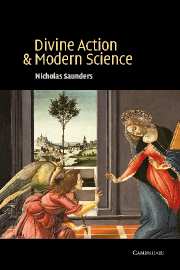Related Research Articles
Materialism is a form of philosophical monism which holds that matter is the fundamental substance in nature, and that all things, including mental states and consciousness, are results of material interactions of material things. According to philosophical materialism, mind and consciousness are caused by physical processes, such as the neurochemistry of the human brain and nervous system, without which they cannot exist. Materialism directly contrasts with idealism, according to which consciousness is the fundamental substance of nature.

The relationship between religion and science involves discussions that interconnect the study of the natural world, history, philosophy, and theology. Even though the ancient and medieval worlds did not have conceptions resembling the modern understandings of "science" or of "religion", certain elements of modern ideas on the subject recur throughout history. The pair-structured phrases "religion and science" and "science and religion" first emerged in the literature during the 19th century. This coincided with the refining of "science" and of "religion" as distinct concepts in the preceding few centuries—partly due to professionalization of the sciences, the Protestant Reformation, colonization, and globalization. Since then the relationship between science and religion has been characterized in terms of "conflict", "harmony", "complexity", and "mutual independence", among others.

Richard Granville Swinburne is an English philosopher. He is an Emeritus Professor of Philosophy at the University of Oxford. Over the last 50 years, Swinburne has been a proponent of philosophical arguments for the existence of God. His philosophical contributions are primarily in the philosophy of religion and philosophy of science. He aroused much discussion with his early work in the philosophy of religion, a trilogy of books consisting of The Coherence of Theism, The Existence of God, and Faith and Reason. He has been influential in reviving substance dualism as an option in philosophy of mind.
Owen Jay Gingerich was an American astronomer who had been professor emeritus of astronomy and of the history of science at Harvard University and a senior astronomer emeritus at the Smithsonian Astrophysical Observatory. In addition to his research and teaching, he had written many books on the history of astronomy.

John F. Haught is an American theologian. He is a Distinguished Research Professor at Georgetown University. He specializes in Roman Catholic systematic theology, with a particular interest in issues pertaining to physical cosmology, evolutionary biology, geology, and Christianity.
The Oxford Socratic Club was a student club that met from 1942 to 1972 dedicated to providing an open forum for the discussion of the intellectual difficulties connected with religion, and with Christianity in particular.
Metaphysical naturalism is a philosophical worldview which holds that there is nothing but natural elements, principles, and relations of the kind studied by the natural sciences. Methodological naturalism is a philosophical basis for science, for which metaphysical naturalism provides only one possible ontological foundation. Broadly, the corresponding theological perspective is religious naturalism or spiritual naturalism. More specifically, metaphysical naturalism rejects the supernatural concepts and explanations that are part of many religions.
Nancey Murphy is an American philosopher and theologian who is Professor of Christian Philosophy at Fuller Theological Seminary, Pasadena, CA. She received the B.A. from Creighton University in 1973, the Ph.D. from University of California, Berkeley in 1980, and the Th.D. from the Graduate Theological Union (theology) in 1987.
The Chinese Library Classification, also known as Classification for Chinese Libraries (CCL), is effectively the national library classification scheme in China. It is used in almost all primary and secondary schools, universities, academic institutions, as well as public libraries. It is also used by publishers to classify all books published in China.

The Bridgewater Treatises (1833–36) are a series of eight works that were written by leading scientific figures appointed by the President of the Royal Society in fulfilment of a bequest of £8000, made by Francis Henry Egerton, 8th Earl of Bridgewater, for work on "the Power, Wisdom, and Goodness of God, as manifested in the Creation."
The Ultimate Boeing 747 gambit is a counter-argument to modern versions of the argument from design for the existence of God. It was introduced by Richard Dawkins in chapter 4 of his 2006 book The God Delusion, "Why there almost certainly is no God".
Darryl G. Hart is an American religious and social historian.

Divine Action and Modern Science (2002) is a book written by Nicholas Saunders. It looks at Near Eastern biblical and modern theological approaches to the idea of divine action, covering such questions as how divine action occurs, what its effects are, the relationship between divine and finite causation and complementarity versus mutual exclusivity. Saunders concludes that God is active in the physical world, but not as described by traditional accounts.

Donald Allen Crosby is an American theologian who is professor emeritus of philosophy at Colorado State University, since January 2000. Crosby's interests focus on metaphysics, American pragmatism, philosophy of nature, existentialism, and philosophy of religion. He is a member of the Highlands Institute of American Religious and Philosophical Thought and has been a leader in the discussions on Religious Naturalism.
Articles related to philosophy of religion include:
Stephen Matthew Barr is an American physicist who is a professor emeritus of physics at the University of Delaware. A member of its Bartol Research Institute, Barr does research in theoretical particle physics and cosmology. In 2011, he was elected Fellow of the American Physical Society, the citation reading "for original contributions to grand unified theories, CP violation, and baryogenesis."

The Blackwell Companion to Science and Christianity is a reference work in science and religion, edited by James B. Stump and Alan G. Padgett, and published by Wiley-Blackwell in 2012. It contains 54 new essays written by an international list of 55 authors, many of them leading scholars in the discipline of science and religion, and others new or up-and-coming voices in the field. The editors claim, "We are seeking to introduce and advance serious thinking and talking about science and Christianity, particularly as they interconnect. We are reflecting on the work of scientists and theologians, trying to find points of contact and points of tension which help to illuminate these practices and doctrines in clear, scholarly light." The book has received positive reviews in Choice, Reference Reviews, Themelios and Perspectives on Science and Christian Faith. The article by Sean M. Carroll generated significant attention when it was discussed on the Huffington Post.
Kelli D. Potter is an American philosopher and associate professor of philosophy at Utah Valley University. Her areas of expertise include: philosophy of religion, Mormon studies, philosophy of gender, and philosophy of logic. Potter was a founding board member of the Society for Mormon Philosophy and Theology and founding editor of Element: The Journal for the Society for Mormon Philosophy and Theology, serving from 2000–2002. Potter also served on the editorial board of Dialogue: A Journal of Mormon Thought from 1999–2003.
References
- ↑
- James F. Salmon. Theological Studies March 2005 v66 i1 p207-209
- ↑ "Modern Physics and Ancient Faith // Books // University of Notre Dame Press". undpress.nd.edu. Archived from the original on 2009-02-10.
- ↑ Stephen P. Weldon. Isis, December 2004, volume 95 issue 4, p. 742-743